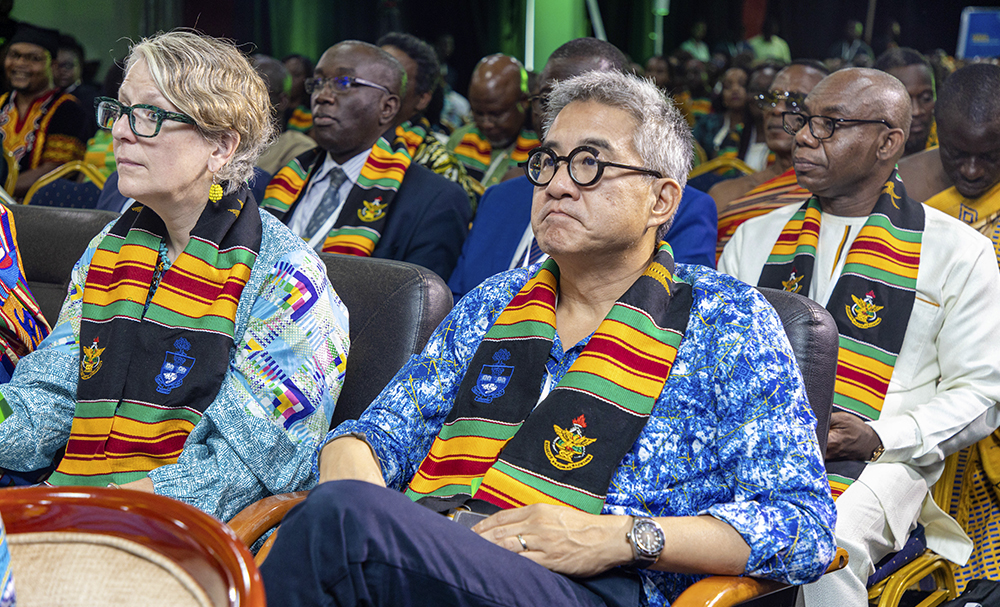Kwame Nkrumah University of Science and Technology (KNUST), Kumasi in partnership with the Mastercard Foundation, hosted the 2nd Annual Africa Health Collaborative Convening under the theme “Nyansapo: Innovating Health Systems in Africa for Africa and the World.” The week-long event, held at the Lancaster Hotel, Kumasi, brought together representatives from nine higher education institutions, the Mastercard Foundation, policymakers, healthcare entrepreneurs, and other stakeholders to explore innovations and opportunities in Africa’s healthcare systems.
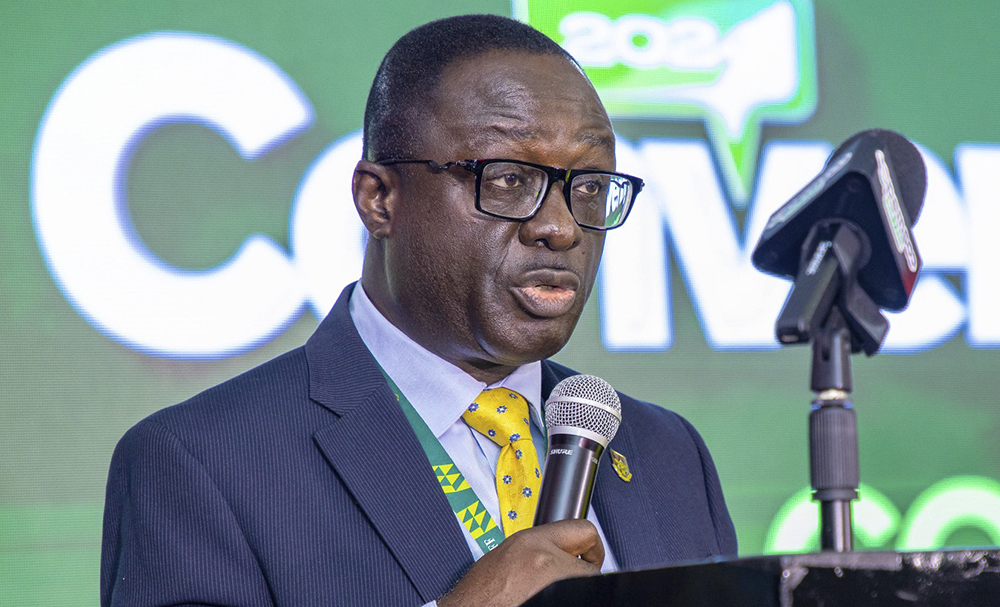
In his welcome address, Professor David Asamoah, the Pro Vice-Chancellor of KNUST, speaking on behalf of the Vice-Chancellor, urged the gathering to engage in genuine collaboration and decisive action. He encouraged participants to leverage their strengths and share knowledge to create a healthier, more equitable global future. "As we exchange successes and lessons learned, let's also remain open to new ideas that can enhance our efforts. Let us leave no one behind, especially the youth with their innovative ideas," he urged.
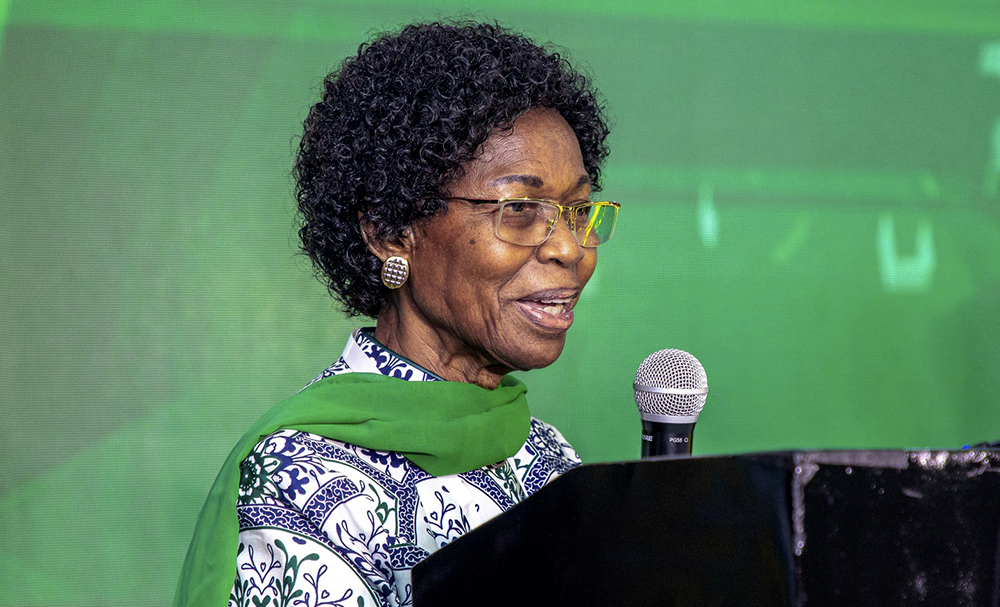
Delivering the keynote address, Emerita Professor Isabella Quakyi, the foundation Dean of the School of Public Health, University of Ghana, highlighted the challenges facing Africa’s healthcare systems. She discussed the growing burden of infectious diseases, alongside non-communicable diseases such as diabetes and cardiovascular conditions, which strain health systems already challenged with underfunding and shortages of skilled professionals. Professor Quakyi emphasised the need for collaboration and praised organisations like the Mastercard Foundation for advancing inclusive healthcare and youth development. She stressed the importance of building resilience in healthcare systems and preparing for future crises through investments in emergency response capabilities, digital health platforms, and data management systems.
"The future of Africa's healthcare will be shaped by partnerships between governments, communities, healthcare providers, and international stakeholders," she said, advocating for collective efforts in building resilient and equitable health systems that serve both Africa and the world.
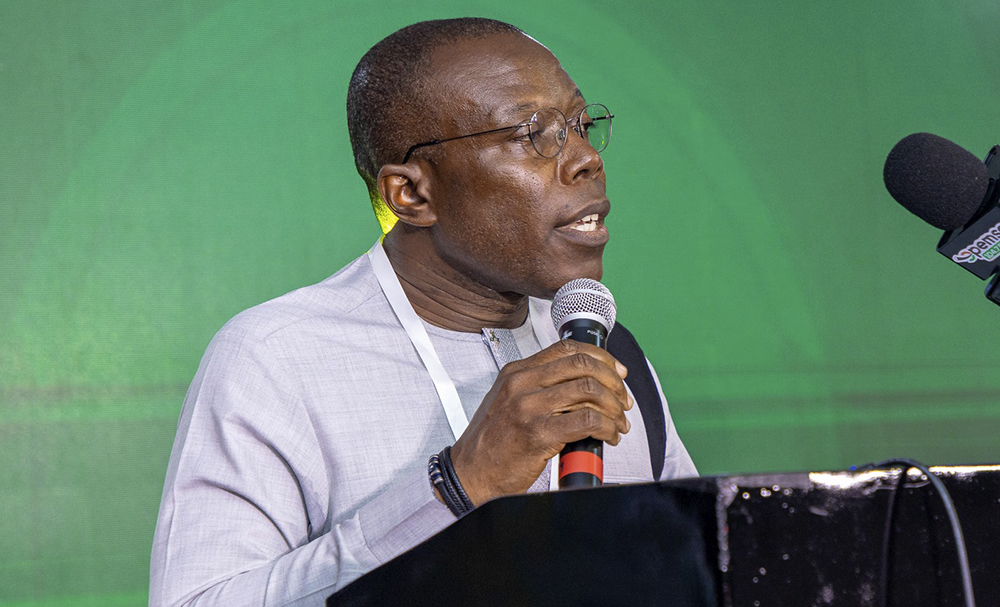
Professor Ellis Owusu-Dabo, the Principal Investigator of the Africa Health Collaborative at KNUST and Chairman of its Executive Steering Committee, underscored the importance of using the vast data generated by the Collaborative to establish a robust health system. He called on partner institutions to create environments that foster innovation by tapping into the talents of Africa’s motivated youth, backed by committed stakeholders. "Innovation thrives when leadership values collaboration, listens actively, and empowers all voices to contribute meaningfully," he remarked.
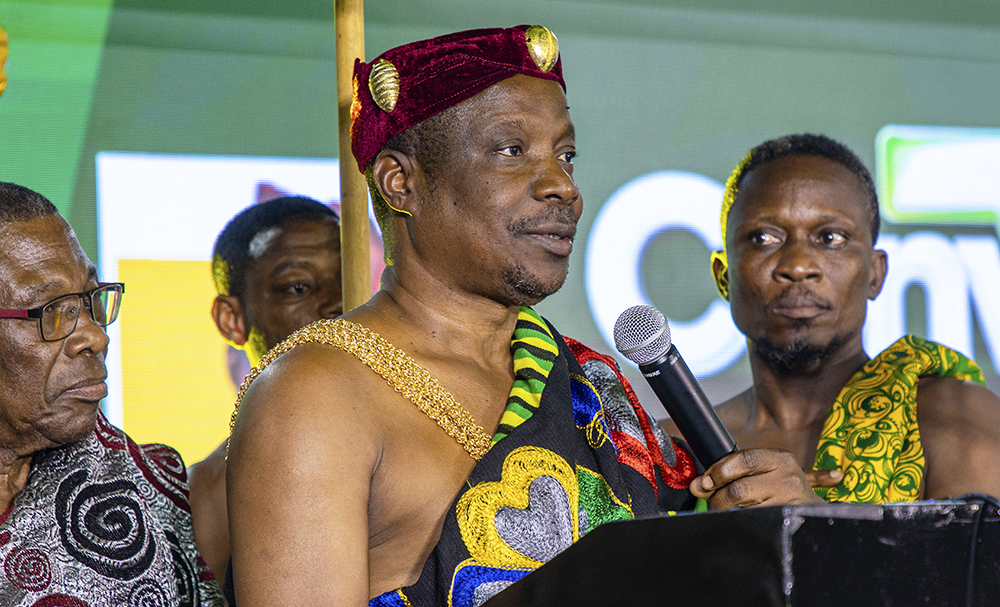
Representing His Royal Majesty Otumfuo Osei Tutu II, Nana Samgba Gyafla II, the Omanhene of the Sampa Traditional Area, delivered the “Knot of Wisdom” message, symbolising the intertwining of knowledge, experience, and values to promote health and well-being across Africa. He emphasised the importance of evidence-based decision-making in healthcare, urging stakeholders to ground their policies, practices, and public health interventions in rigorous research and data. He also highlighted the importance of engaging local communities in healthcare decision-making to achieve health equity.
Dr. Peter Materu, Chief Program Officer of the Mastercard Foundation, encouraged partnering institutions to create opportunities for young women and men to contribute to healthcare innovation. He reiterated the role of these institutions as incubators of innovation in primary healthcare and stressed the need to equip graduates not just as employees but as job creators capable of driving the next wave of health innovation across the continent.
The Health Minister of the Republic of Ghana , Dr. Bernard Okoe Boye, stressed the importance of sustained funding and collaboration for healthcare innovation. He noted that innovating healthcare is not only a necessity but also an opportunity to create a healthier and more equitable future by embracing new ideas, technology, and partnerships.
The 2024 convening featured plenary sessions, workshops on health innovation, networking opportunities, and presentations of impact stories and case studies from across Africa.








